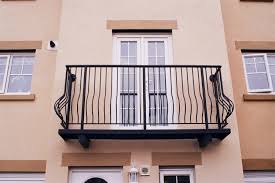记忆方法
将“balcony”分解为“bal”和“cony”,可以将其想象为“bald(秃顶)”的“cousin(表兄弟)”。想象一个秃顶的人(bald)在阳台上(balcony)和他表兄弟(cousin)聊天,形成一个场景帮助记忆。
以上内容由AI生成, 仅供参考和借鉴
中文词源
balcony 阳台
balc, 树干, 词源同bole, balk. 原指用树干搭建的简易阳台。
英语词源
- balcony
-
balcony: [17] Balcony entered English from Italian balcone, but it seems to be ultimately of Germanic origin. It was probably borrowed into Old Italian, with the meaning ‘scaffold’. from Germanic *balkon ‘beam’, source of English balk – perhaps from the notion of a platform or scaffold being built from beams of timber, although the connection is not altogether clear.
=> balk - balcony (n.)
- 1610s, from Italian balcone, from balco "scaffold," from a Germanic source (perhaps Langobardic *balko- "beam," cognate with Old English balca "beam, ridge;" see balk (n.)) + Italian augmentative suffix -one. Till c. 1825, regularly accented on the second syllable.
权威例句
- 1. Chris unhooked the shutters and went out on the balcony.
- 克里斯拉开百叶窗,走到了阳台上。
- 2. There were glass doors leading on to this balcony.
- 有玻璃门通到这个阳台。
- 3. She led us to a room with a balcony overlooking the harbour.
- 她把我们领进了一个带阳台的房间,从那里可以俯瞰海港。
- 4. Vivid red and pink geraniums cascade over my balcony.
- 鲜艳的红色和粉色的天竺葵从我家的阳台上直挂下去。
- 5. Her house had a balcony.
- 她家房子有一个阳台。

